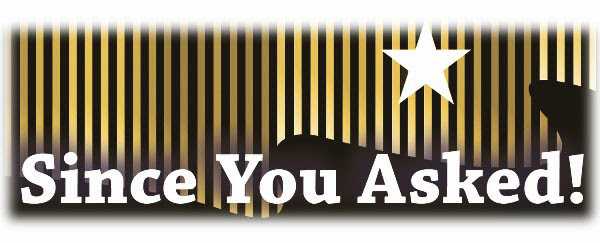Does @AKStateLibrary have protections in place for Alaska's young students from EBSCO on SLED? https://t.co/3EAFV5xZcw— Chickadee Chick (@chickadee_chick) July 8, 2017
The World Net Daily (WND) article linked from Chickadee Chick's tweet reported on claims from the National Center on Sexual Exploitation (NCOSE) that children in Colorado were able to search EBSCO databases and find sexually inappropriate materials. EBSCO is a national vendor of online indexes to magazines with linked full-text articles from the magazines. EBSCO databases are available to Alaskans through SLED. We have not had reports of Alaska students finding sexually inappropriate materials through any of the EBSCO databases on SLED, but we do take claims of possible harm to children very seriously.
Because it is never a good idea to take a single article from ANY source as absolutely true, our first step was to verify the WND story. We visited the NCOSE site to read the claims they made about the EBSCO databases. Next, we found a story from a FOX News affiliate in Birmingham, Alabama, where EBSCO is located, that contained additional details on the claims, along with a response from EBSCO.
Our research and reading led us to conclude that there were some articles from professional journals discussing sexual matters that were inappropriately searchable from elementary and middle school databases. EBSCO addressed NCOSE’s concerns when contacted and removed the offending journals from their elementary and middle school databases. The WBRC article indicated some additional controversy and additional steps being taken by EBSCO.
At this point, we contacted EBSCO directly, both to confirm the account we found from WBRC and to ask about the ongoing status of their work. They told us in part:
“Based on our reviews, we are confident that we have removed all content identified as being sexually explicit from these products. At this time, we are focusing our additional curation scrutiny on our other K-12 products to replicate the approach that we took with Primary Search and Middle Search Plus.”
“Please know that EBSCO is very mindful of issues around censorship and always remains neutral on topics; the content provided in our databases does not reflect EBSCO positions or opinions. As noted, we have strengthened our review system to ensure that questionable content does not appear in our K-12 products in the future and put plans in place to further empower product managers and consistently ensure the content in our K-12 products is age appropriate. Furthermore, in order to address additional concerns that may vary from school to school or district to district, EBSCO continues to maintain processes that enable individual libraries and school districts to control the content they provide and remove titles from their EBSCO databases. While customers have the ability to exclude any title as they may see fit, we are working toward the article level controls so that each customer can ultimately determine if a given article is deemed appropriate for their students/community.”
Alaska State Library staff tried to find the materials that the original WND article stated were in EBSCO, but we could not find those items. It appears to us that EBSCO has made a good faith effort to remove these materials from their databases. At this point, we are satisfied with EBSCO’s efforts in this area.
Turning from EBSCO to internet access generally, you should know that all Alaska schools and school libraries have anti-pornography filters in place, as does any Alaska public library that receives federal funding for internet access. These filters are not perfect – they sometimes let materials through they should not and sometimes they block content they should not – like research on breast cancer. But the filters are there.
The Alaska State Library strongly encourages parents to be with their children online as much as possible and encourage their children to discuss what find. Parents are children’s first and best teachers.
If you have a concern about a particular resource or article that is available through the SLED databases, we ask you to do the following:
- Be as specific as you possibly can, because our databases have a LOT of journals. Please be sure to note the name of the database you are searching, the title of the article, the author’s name and the title of the journal in which the article appeared. The more specific you can be, the easier and faster it will be for us to address your concerns. Please state clearly why you find a particular resource inappropriate for children.
- Start by sharing your concerns with your local library. If you don’t have a local library, you can e-mail us at asl@alaska.gov.
Since 1994, the Alaska State Library has worked with the University of Alaska Anchorage Consortium Library to make EBSCO databases available through SLED to Alaskans at school, work and home. This is the first time content on EBSCO has been questioned. We hope that EBSCO’s action addresses the concerns of the Twitter user and others concerned about children’s access to databases paid for with government funds.
References:
New alert over X-rated materials .. In School! (World Net Daily, 6/30/2017
http://www.wnd.com/2017/06/new-alert-over-x-rated-materials-in-school/
Could your kids find pornographic articles on school computers? (WBRC Fox 6 News, 6/28/2017) http://www.wbrc.com/story/35775174/could-your-kids-find-pornographic-articles-on-school-computers

